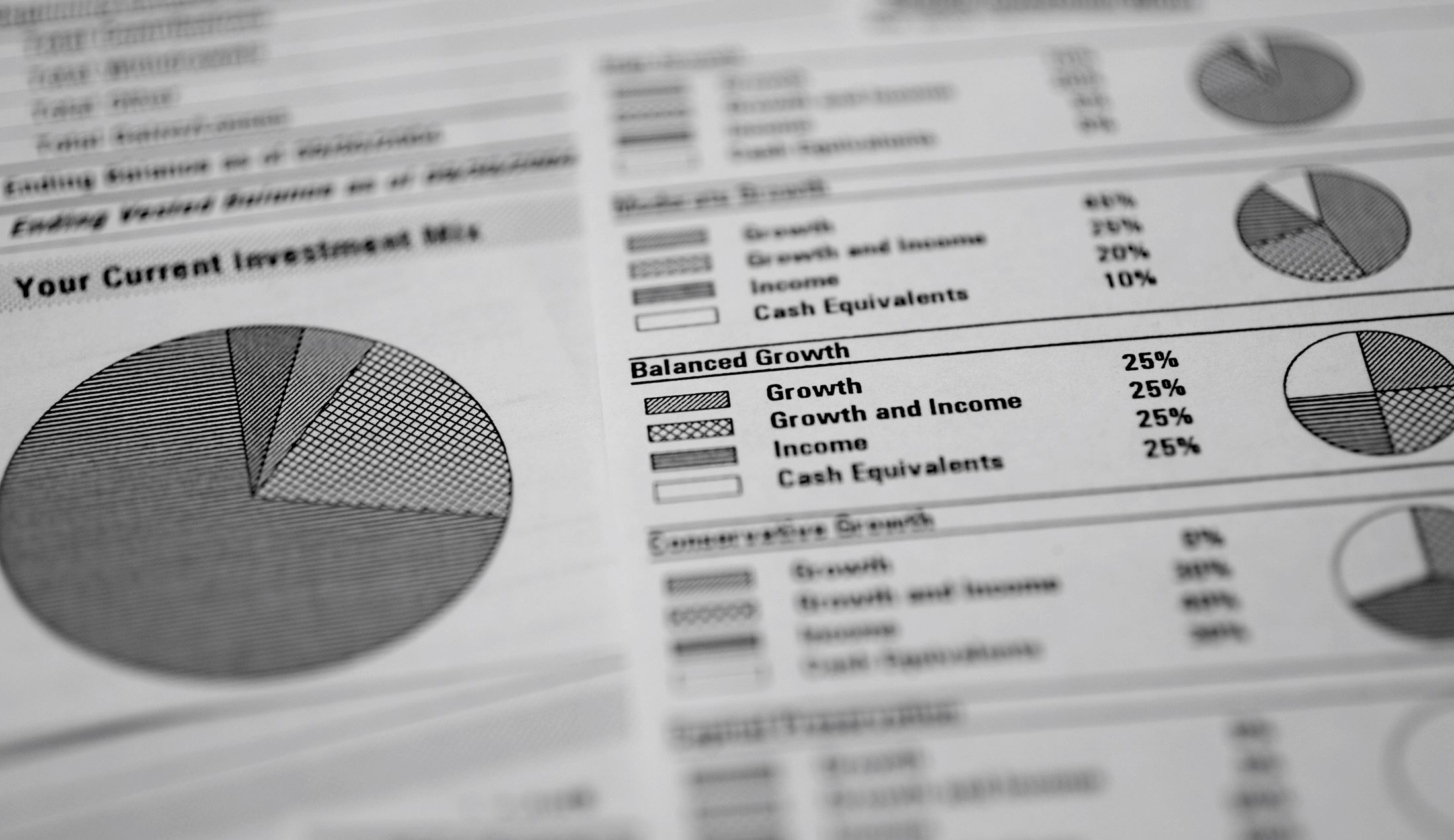

Finance
How To Check My Credit With ITIN
Modified: February 21, 2024
Looking to check your credit with an ITIN? Learn how to monitor your finances and access your credit history with this comprehensive guide on finance and ITIN credit checks.
(Many of the links in this article redirect to a specific reviewed product. Your purchase of these products through affiliate links helps to generate commission for LiveWell, at no extra cost. Learn more)
Table of Contents
Introduction
Checking your credit is an important step towards maintaining good financial health and securing your future. Your credit score plays a crucial role in determining your eligibility for loans, credit cards, and even certain job opportunities. It provides lenders and creditors with an insight into your financial history and helps them evaluate your creditworthiness.
But what if you don’t have a Social Security Number? Can you still check your credit score? The answer is yes, thanks to an Individual Taxpayer Identification Number (ITIN). An ITIN is a nine-digit number issued by the Internal Revenue Service (IRS) to individuals who are not eligible for a Social Security Number but need to fulfill their tax obligations.
It’s important to understand the process of checking your credit with an ITIN and the requirements involved. In this article, we will guide you through the steps of checking your credit with an ITIN, shed light on common misconceptions, and offer tips for improving your credit score.
Why is checking credit important?
Checking your credit is an essential part of financial responsibility. It allows you to have a clear understanding of your creditworthiness and how lenders perceive you. Here are a few reasons why checking your credit is important:
- Loan approvals: When you apply for a loan, such as a mortgage or a car loan, lenders assess your creditworthiness to determine if you’re a reliable borrower. A good credit score can increase your chances of loan approval and help you secure better interest rates.
- Credit card applications: Credit card companies review your credit history before approving your application. A higher credit score can lead to approval for premium credit cards with better benefits and rewards.
- Rental applications: When you’re looking for a place to rent, landlords often run credit checks to evaluate your reliability in paying rent. A good credit score can make it easier for you to secure a lease.
- Employment opportunities: Some employers may request to review your credit report as a part of the hiring process. They may use it as an indicator of financial responsibility and trustworthiness.
- Identification of errors: Checking your credit report allows you to identify any errors or inaccuracies that could be negatively impacting your credit score. By catching these errors early, you can take steps to rectify them and improve your credit profile.
Regularly monitoring your credit can help you stay on top of your financial well-being and take proactive steps to improve your credit score. Understanding your creditworthiness can empower you to make informed financial decisions and work towards achieving your financial goals.
What is an ITIN?
An Individual Taxpayer Identification Number (ITIN) is a nine-digit tax processing number issued by the Internal Revenue Service (IRS) for individuals who are not eligible to obtain a Social Security Number (SSN). The primary purpose of an ITIN is to facilitate the filing and processing of tax returns for individuals who have federal tax reporting requirements.
ITINs are typically issued to non-resident immigrants, foreign students, and other individuals who are required to file U.S. tax returns but are ineligible for an SSN. Having an ITIN allows these individuals to comply with their tax obligations and receive certain tax benefits, such as claiming dependents or obtaining tax refunds.
It’s important to note that an ITIN is not an authorization to work in the United States or provide eligibility for Social Security benefits. Its sole purpose is for tax administration, ensuring that individuals fulfill their tax responsibilities.
To apply for an ITIN, you need to submit Form W-7, Application for IRS Individual Taxpayer Identification Number, to the IRS. The form requires you to provide necessary documentation, such as proof of identity and foreign status, along with your tax return.
Once approved, you will receive your ITIN, which you can use for tax purposes. It’s important to safeguard your ITIN and use it only for lawful tax-related activities. Sharing your ITIN with others should be avoided to prevent identity theft or misuse of your tax information.
While an ITIN primarily serves tax purposes, it can also enable individuals without an SSN to access certain financial services, such as banking and credit. One of the key areas where an ITIN can be valuable is in checking your credit score.
Understanding the requirements for checking credit with an ITIN
Checking your credit score with an ITIN is possible, but it’s important to understand the specific requirements involved. Here are the key points to consider:
1. Applying for credit with an ITIN
When you have an ITIN, you can apply for credit products such as credit cards, loans, or mortgages. However, it’s essential to keep in mind that not all lenders accept ITINs, and their criteria may vary. Some financial institutions may require additional documentation or have specific eligibility requirements for applicants using an ITIN.
2. Building credit with an ITIN
If you’re new to the United States or you haven’t established credit yet, having an ITIN can be a valuable tool for building your credit history. By using your ITIN to apply for credit products and making timely payments, you can gradually establish a positive credit history that will contribute to your credit score.
3. Establishing a credit profile
When checking your credit with an ITIN, it’s important to note that you’ll be establishing a credit profile separate from those who have a Social Security Number. This means that your credit activity with an ITIN won’t be considered when calculating credit scores for individuals with SSNs.
4. Providing necessary documentation
When applying for credit with an ITIN, lenders may require additional documentation to verify your identity and financial history. This may include providing copies of your ITIN card, valid identification, proof of residence, and any other relevant financial documents.
5. Building a strong credit history
To build a strong credit history with an ITIN, it’s essential to make payments on time, keep credit utilization low, and manage your debts responsibly. Consistently demonstrating good credit behavior will help improve your credit score and increase your chances of obtaining credit in the future.
By understanding these requirements, you can navigate the process of checking your credit with an ITIN and take steps towards establishing a positive credit history. Remember, it’s crucial to choose responsible lenders and manage your credit wisely to achieve your financial goals.
Steps to check your credit with an ITIN
If you have an Individual Taxpayer Identification Number (ITIN) and want to check your credit score, follow these steps:
1. Obtain a free copy of your credit report
Start by obtaining a free copy of your credit report from one of the major credit reporting agencies, such as Equifax, Experian, or TransUnion. The Fair Credit Reporting Act (FCRA) allows every consumer to request a free credit report annually.
2. Verify the accuracy of your personal information
Review your credit report to ensure that your personal information is accurate. Check that your name, date of birth, and address are correctly listed.
3. Look for accounts associated with your ITIN
Scan through your credit report to identify any accounts that are linked to your ITIN. These could include credit cards, loans, or other forms of credit that you’ve applied for using your ITIN.
4. Check for any errors or discrepancies
Carefully examine each account associated with your ITIN and check for any errors, discrepancies, or fraudulent activities. Look for incorrect payment histories, incorrect balances, or unfamiliar accounts that you didn’t open.
5. Address any issues or errors
If you find any errors on your credit report, you can dispute them with the credit reporting agency. Contact the agency directly and provide them with the necessary documentation to support your claim. It’s important to rectify any inaccuracies to ensure the overall accuracy of your credit report.
6. Monitor your credit regularly
Once you have checked your credit with an ITIN, it’s important to continue monitoring your credit regularly. Consider signing up for credit monitoring services that provide ongoing credit reports and alerts for any changes or potential fraudulent activities.
By following these steps, you can stay informed about your credit status and take the necessary actions to ensure the accuracy of your credit report. Regularly checking your credit with an ITIN allows you to monitor your creditworthiness and take steps towards improving your financial health.
Tips for improving your credit score
If you have an Individual Taxpayer Identification Number (ITIN) and want to improve your credit score, here are some tips to help you on your journey:
1. Make timely payments
One of the essential factors in building and maintaining a good credit score is making timely payments on your credit accounts. Ensure that you pay your bills, loans, and credit card balances on time to avoid late payment penalties and negative impacts on your credit score.
2. Keep credit utilization low
Try to keep your credit utilization ratio, which is the amount of credit you’re using compared to your total available credit, below 30%. Higher credit utilization can signal financial stress and negatively affect your credit score. Keeping your balances low demonstrates responsible credit management.
3. Build a positive credit history
Establishing a positive credit history takes time. Keep your credit accounts open, even if they have low balances, to demonstrate a long credit history. Consistently making payments and maintaining a positive credit profile will contribute to an improved credit score over time.
4. Diversify your credit mix
Having a mix of credit accounts, such as credit cards, installment loans, and mortgages, can positively impact your credit score. It demonstrates your ability to manage different types of credit responsibly. However, only take on credit accounts that you can manage comfortably.
5. Use credit responsibly
Avoid maxing out your credit cards or taking on too much debt. Use credit responsibly and only borrow what you need and can comfortably repay. Responsible credit usage shows lenders that you are a low-risk borrower and can positively impact your credit score.
6. Limit new credit applications
Each time you apply for new credit, it can result in a hard inquiry on your credit report, which can temporarily lower your credit score. Limit unnecessary credit applications and only apply for credit when necessary and justified.
7. Regularly check your credit report
Monitoring your credit report allows you to identify any errors or discrepancies that may be negatively impacting your credit score. Regularly reviewing your credit report can help you take prompt action to rectify any inaccuracies and maintain a healthy credit profile.
Remember, building a good credit score takes time and consistent effort. By following these tips and practicing responsible credit management, you can steadily improve your credit score over time and create a solid foundation for your financial future.
Common misconceptions about checking credit with an ITIN
When it comes to checking credit with an Individual Taxpayer Identification Number (ITIN), there are some common misconceptions that need to be addressed. Let’s debunk these misconceptions:
1. ITINs are not valid for credit purposes
Contrary to popular belief, ITINs are indeed accepted for credit purposes. Lenders and creditors can use ITINs to verify the identity of individuals and assess their creditworthiness. While the process may differ from those with Social Security Numbers (SSNs), it is possible to check your credit with an ITIN.
2. Credit scores are not calculated for individuals with ITINs
The credit scoring process is not exclusive to individuals with SSNs. Credit reporting agencies calculate credit scores based on the information reported by lenders and creditors, regardless of whether an SSN or ITIN is used to identify the individual. Your credit activity and payment history with an ITIN can impact your credit score.
3. ITIN holders cannot build a credit history
Having an ITIN does not prevent you from building a credit history. By responsibly using credit products, such as credit cards or loans, and making timely payments, you can establish a positive credit history. Regularly checking your credit report and monitoring your credit activity are essential to track your progress.
4. ITIN users have limited access to credit products
While some lenders may have specific criteria or requirements for ITIN holders, there are many financial institutions that offer credit products to individuals with ITINs. It’s important to research and find lenders who are willing to work with ITIN holders and provide various credit options.
5. ITIN credit reports are different from SSN credit reports
ITIN credit reports are similar to those associated with SSNs. The information reported, such as credit accounts, payment history, and public records, is collected and used to generate credit reports and calculate credit scores for individuals with ITINs. The same factors that impact credit scores for SSN holders also apply to individuals with ITINs.
6. ITIN holders cannot improve their credit score
ITIN holders have the same opportunities as SSN holders to improve their credit scores. By practicing responsible credit behavior, such as making timely payments, keeping credit utilization low, and managing debts effectively, individuals with ITINs can positively impact their credit scores over time.
It’s crucial to understand these misconceptions and their inaccuracies when it comes to checking credit with an ITIN. With the right knowledge and awareness, you can confidently navigate the credit system and make informed financial decisions based on your individual circumstances.
Conclusion
Checking your credit is a vital aspect of managing your financial health, and having an Individual Taxpayer Identification Number (ITIN) should not hinder your ability to do so. While there may be certain differences and requirements for individuals with ITINs, it is possible to check your credit score and build a positive credit history.
By understanding the importance of checking your credit, the role of an ITIN, and the steps involved in checking credit with an ITIN, you can take control of your financial well-being. Make sure to review your credit report regularly, monitor your credit activity, and address any inaccuracies or errors promptly.
Improving your credit score with an ITIN is achievable. By practicing responsible credit behavior, such as making timely payments, keeping credit utilization low, and diversifying your credit mix, you can steadily increase your creditworthiness and open doors to better financial opportunities.
Don’t fall for the common misconceptions surrounding checking credit with an ITIN. ITINs are indeed valid for credit purposes, and individuals with ITINs can build a credit history and improve their credit scores. The key is to be informed, proactive, and diligent in monitoring and managing your credit.
Remember, your credit score is not just a number; it reflects your financial responsibility and impacts various aspects of your life, from loan approvals to rental applications. Take charge of your credit, utilize your ITIN, and pave the way for a brighter financial future.














